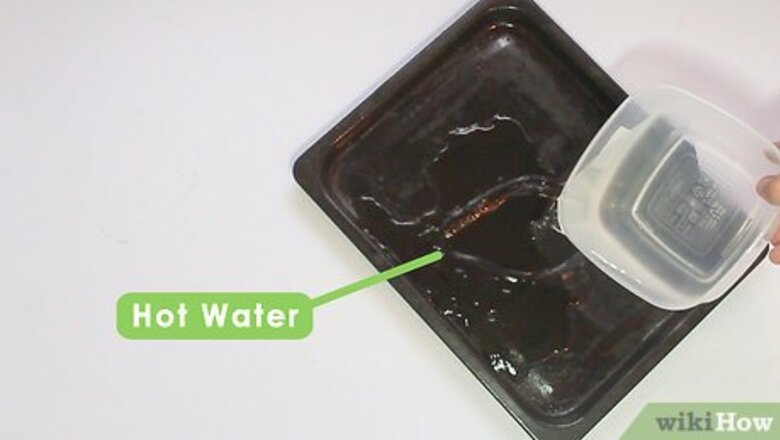
views
Soaking the Pan With a Dryer Sheet
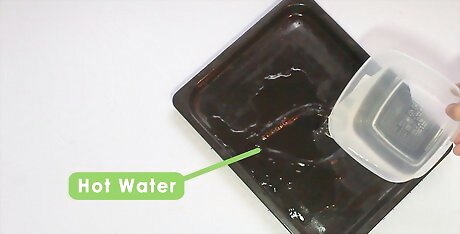
Fill the broiler pan with hot water. If your broiler pan has sides that allow it to hold water, set it on your counter and fill it with water. If the broiler pan has slats or is flat with no edges, put it to soak in the sink or a plastic tub or a basin that’s large enough to hold it. Make sure the whole surface with cooked-on food is covered with water. Warm or cool water may work, but hot is more effective.
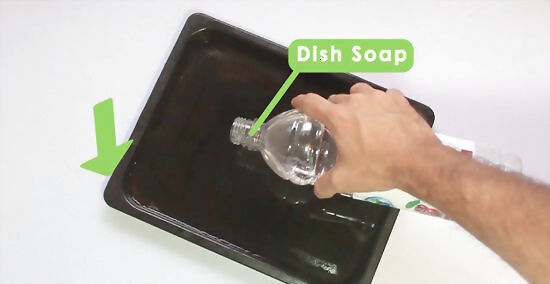
Squirt a bit of dish soap into the water. Use a basic dishwashing detergent and squirt a zigzag across the surface of the pan. A dish soap that is specially formulated to fight grease is most helpful. If you happen to be out of dish soap, this method may still work without it.
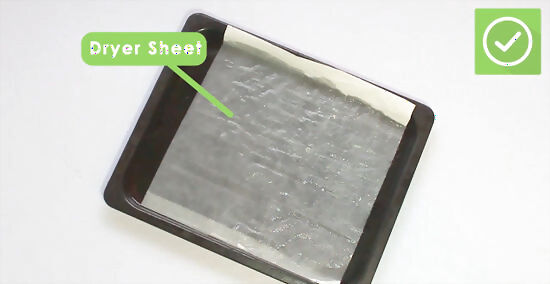
Place a dryer sheet in the water. Lay a dryer sheet flat in the water, making sure that it goes under the water and is covered. For pans with especially caked or burnt on food residue, put two dryer sheets in the pan. If you use biodegradable dryer sheets, this can be an especially green cleaning solution.
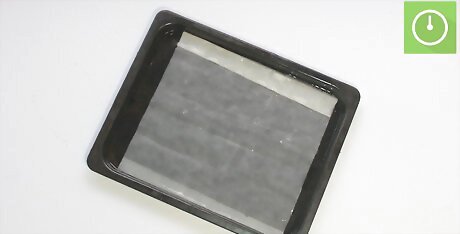
Let the pan sit for at least one hour. Leave the pan to soak with the water, soap, and dryer sheet for about one hour. If the pan has badly stuck on food, leave it for a few hours, or even overnight. The dryer sheet will loosen the food residue while it soaks.
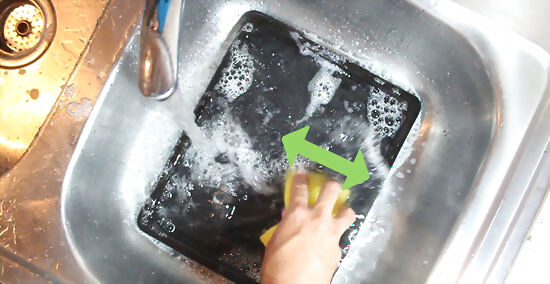
Rinse and wipe away any remaining food. After the pan has soaked for a while, dump the water out of it. Depending on how bad it was, wipe the pan with a sponge or scrubber to remove any residue that is still stuck on. It also wouldn’t hurt to give the pan a quick, regular cleaning with dish soap and water.
Using the Power of Baking Soda
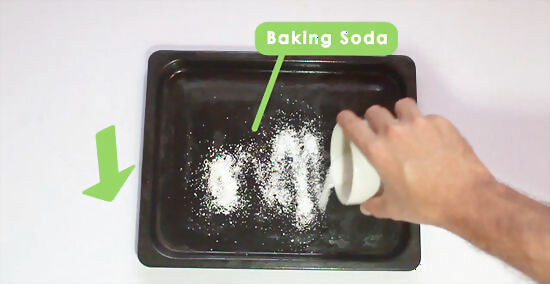
Sprinkle baking soda liberally on the broiler pan. Set your broiler pan in the sink or on the counter or table. Take your container of baking soda and sprinkle some over the entire surface of the broiler pan. Make sure the baking soda forms a thick coat for the most effective cleaning. To conserve your baking soda, it’s not necessary to cover every inch of the pan, but give most of it a good covering.
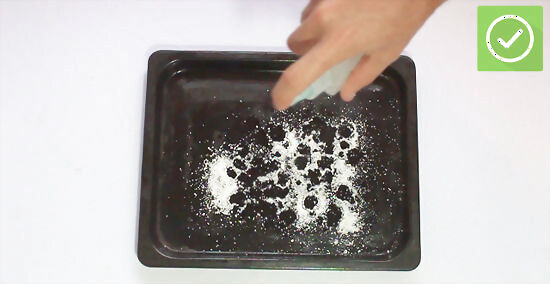
Use a spray bottle to dampen the baking soda. Fill a spray bottle with water and squirt it on the baking soda. Don’t be afraid of spraying too much water, as much of it will soak down into the baking soda. If you don’t have a spray bottle, gently pour water onto the baking soda, mixing it slightly to form a paste on the pan.
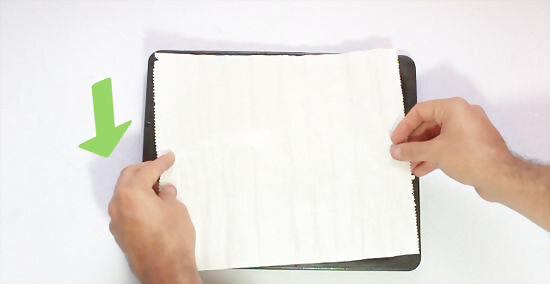
Lay wet paper towels on top of the baking soda. Grab enough paper towels to cover the whole area of the broiler pan. Get the towels dripping wet and lay them across the surface of the baking soda. This keeps the baking soda wet longer while it loosens the food residue. Dampen the towels every so often if you feel they are drying out too quickly.
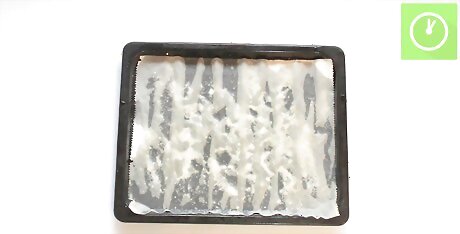
Allow the pan to sit for an hour or more. Leave the pan sitting for a minimum of 30 minutes while the baking soda does its work. The process is more effective if you leave it for two or three hours, or even overnight for badly stuck on food residue. If you leave the pan sitting overnight, most of the water will evaporate, which is okay.
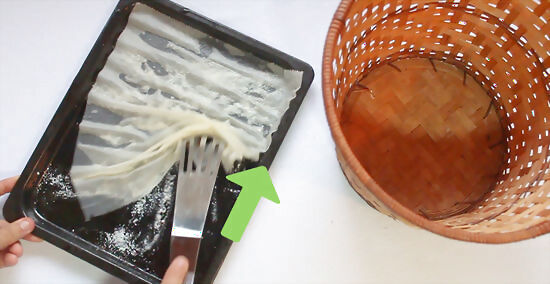
Scrape the spent baking soda into the trash. Take the pan to the trash can and use a spatula to scrape the used up baking soda out into the trash. It’s better to discard it in the garbage rather than in the sink as it can clog up your drain.
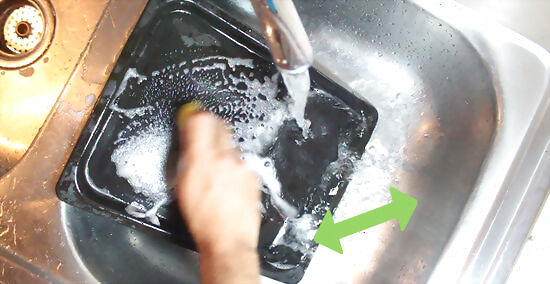
Rinse the pan and gently scrub as needed. Take the broiler pan to the sink and rinse off any leftover baking soda, as well as any food residue that remains. If necessary, use a washcloth or scrubbing sponge to gently wipe away anything that is still stuck on the pan.
Scouring With Bar Keepers Friend
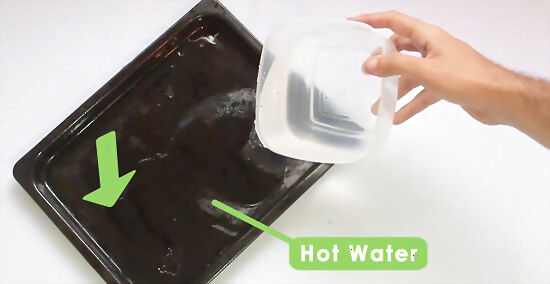
Wet the broiler pan with warm water. Place the broiler pan in the sink or on your table or countertop. If the pan has sides, put enough water to thinly cover the bottom of the pan. If the pan does not have sides or has slats, put enough water in the sink to just barely cover the top of the pan. Hot water is not necessary, but warm water is more effective than cold water in cleaning broiler pans.
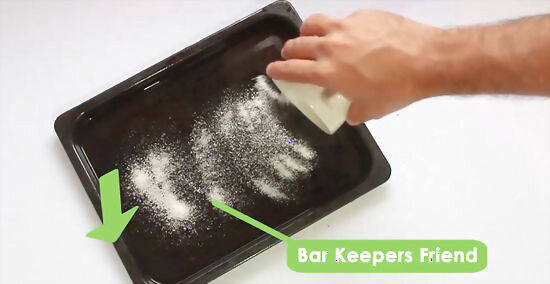
Sprinkle Bar Keepers Friend cleaning powder on the pan. Lightly sprinkle Bar Keepers Friend over the entire surface of the pan so that at least the worst spots are covered. There is no need to heap the cleaner on, but be sure the pan is totally covered in powder. Bar Keepers Friend also offers a spray which will do the job, as well. Find Bar Keepers Friend in the cleaning supplies section of the grocery or big-box store. Any kind of degreaser can also work here.
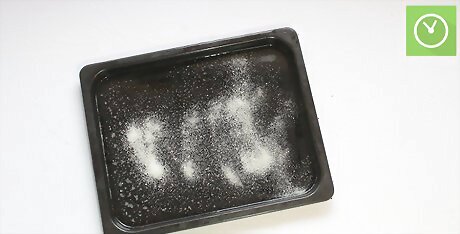
Let the pan sit for a few minutes. Find something to do for a few minutes while the cleaner works to break up the burnt gunk and food residue on the pan. For pans that are significantly caked in grime, let the powder sit on the pan for ten minutes.
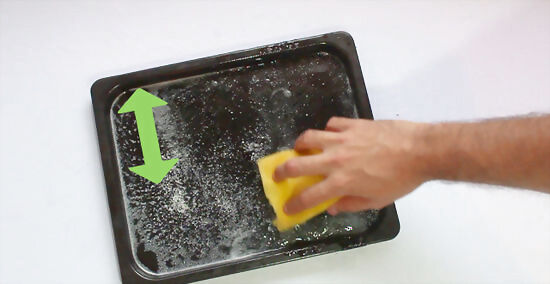
Scrub the pan with a sponge or scrubber pad. Use an old rag, sponge or scrubbing pad to gently scour the entire surface of the pan. Since Bar Keeper’s Friend is stronger than dishwashing detergent, it’s best to use a sponge that you don’t use for your other dishes. If you only have one sponge, it won’t hurt anything, but rinse the sponge thoroughly after you finish cleaning the broiler pan.
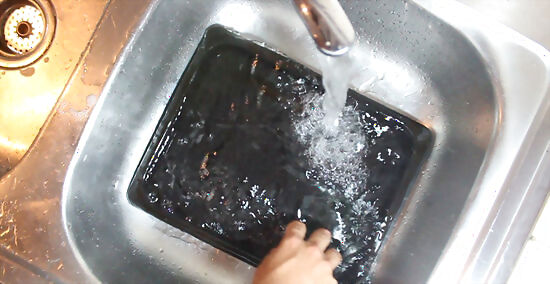
Rinse the pan completely. Once you have scrubbed the entire surface and feel confident that the gunk has been removed, thoroughly rinse all of the Bar Keeper’s Friend off of the pan. It doesn’t hurt to wipe the pan down again with a clean wet rag to remove any cleaner that might be stuck on the pan.














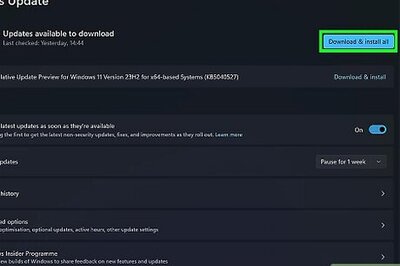
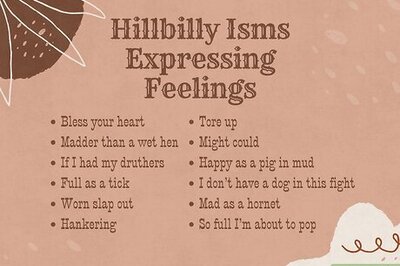

Comments
0 comment